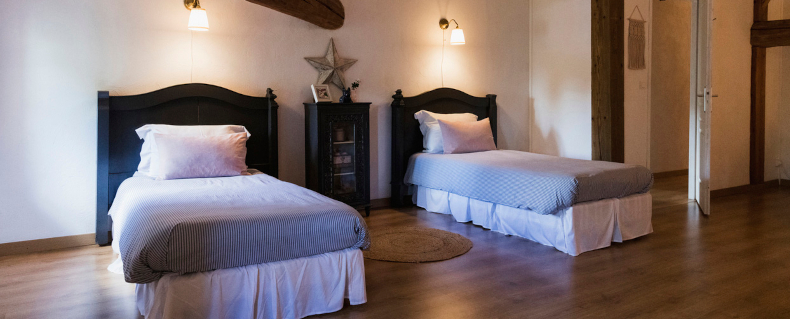
San Francisco, Marin, and Oakland, CA
Sleep divorce is when couples agree to sleep in separate bedrooms. Despite its name, it doesn’t actually mean divorce, just that you don’t share a bed when sleeping. The term itself has become quite the buzzword lately. Google it, and you’ll find articles like How ‘sleep divorce’ can improve your relationship or Sleep Divorce: What it is and why you may want one. Regardless of what experts say about it, many couples are forced into ‘sleep divorce’ because one or both snores loudly. Who doesn’t want a good night’s sleep uninterrupted? While sleeping apart from your significant other may help each of you get a better night’s sleep, it could hinder your relationship in other ways. So, today on the blog, our sleep apnea dentists in the Bay Area offer advice on how to put an end to your sleep divorce.
What causes snoring?
Let’s talk about snoring first. Snoring is often the most telltale sign of a sleep-breathing disorder called obstructive sleep apnea. It occurs when an obstruction in the airway cuts off or restricts airflow. Usually, this is caused by collapsing soft tissue blocking the airway. As a result, air that seeps past the blockage vibrates the soft tissue, causing snoring and reducing oxygen to the body, organs, and blood system. Therefore, the brain awakens out of the deepest stage of the sleep cycle, REM sleep, to signal the body to resume breathing. A snorer may experience these episodes dozens or even hundreds of times a night! It’s no wonder snorers tend to be tired all of the time.
Why is snoring a big deal?
It may sound more like an annoyance to anyone else in the room, but snoring can be dangerous for your health. In essence, snoring means the body isn’t getting enough air. What would you do if your body wasn’t getting enough food or water? Would you ignore the warning signs, assuming the deficit wasn’t a big deal? Absolutely not! Reduced airflow or oxygenation in the body shouldn’t be any different. Ensuring your body gets enough oxygen while awake or asleep is just as crucial as food and water. In fact, research reveals that ignoring sleep apnea could result in a higher risk of diabetes, heart disease, and even dementia. So, snoring has a lot more to do with your health than you may realize. And, sleeping in separate rooms away from your snoring partner doesn’t help the condition. You’re just ignoring it.
What can be done to manage snoring?
In the Bay Area, we offer a simple solution to snoring – a mandibular advancement device also referred to as an oral appliance. The appliance is made from impressions of your mouth to ensure a snug yet comfortable fit. Typically, the appliance is adjustable by your dentist to ensure the most effective results. The appliance positions the tongue and jaw in precise alignment to facilitate an open airway while sleeping. This reduces the occurrence of soft tissue collapsing in the back of the throat, blocking the airway. Wearing the oral appliance is discreet and comfortable. The best part is that it doesn’t require any cords or electricity to function, unlike a CPAP machine that can be noisy and cumbersome. Research shows that oral appliance therapy is becoming the most popular and effective choice for managing mild to moderate cases of sleep apnea.
Stop My Snoring in San Francisco, Marin, and Oakland, California
‘Snoring divorce’ or ‘sleep divorce’ doesn’t have to be your life. If you’d like to learn more about how to stop snoring without a CPAP or are interested in an alternative to a sleep apnea machine, contact Glen Park Dental today by calling (415) 585-1500 or book an appointment online.


